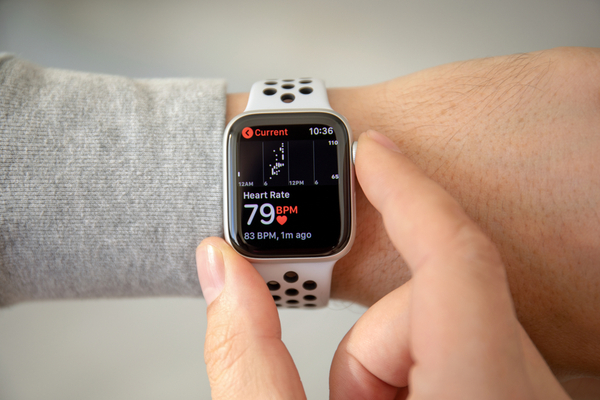Last week, Apple appealed a decision to ban imports of its watches based on a complaint from medical monitoring technology company Masimo, after U.S. President Joe Biden’s administration declined to veto a government tribunal. The tech giant also filed an emergency request on Tuesday for the U.S. Court of Appeals for the Federal Circuit to halt the ban.
As Reuters reports, the tech giant asked the Federal Circuit to pause the ban at least until U.S. Customs and Border Protection decides whether redesigned versions of its watches infringe Masimo’s patents, and to put the ban on hold while the court considers Apple’s request. The customs office is due to make its decision on January 12, Apple said.
Masimo has accused Apple of hiring away its employees, stealing its pulse oximetry technology and incorporating it into the popular Apple Watch.
The U.S. International Trade Commission’s (ITC) order bars imports and sales of Apple Watches that use technology for reading blood-oxygen levels. Apple has included the pulse oximeter feature in its smart watches starting with its Series 6 model in 2020. U.S. Trade Representative Katherine Tai decided not to reverse the ban following careful consultations, and the ITC’s decision became final on Dec. 26, the Trade Representative’s office said.
An Apple spokesperson said the company has appealed the ban to the U.S. Court of Appeals for the Federal Circuit in Washington. “We strongly disagree with the USITC decision and resulting exclusion order, and are taking all measures to return Apple Watch Series 9 and Apple Watch Ultra 2 to customers in the U.S. as soon as possible,” Apple said in a statement on Tuesday.
The ITC last week rejected Apple’s request to pause the ban during the appeal process and opposed Apple’s request for the Federal Circuit to halt the ban in a court filing on Tuesday. A Masimo spokesperson called the ITC decision “a win for the integrity of the U.S. patent system, and ultimately American consumers.”
While companies usually settle such disputes, Apple may think it can design around the patents quickly or remove the infringing feature, said Nicholas Matich, an intellectual property attorney with law firm McKool Smith. “There’s nothing legally extraordinary about the ITC issuing an exclusion order,” Matich said. “What’s extraordinary here is that the product at issue is high profile and that Apple has chosen to live with the ITC order rather than settle.”
Stifel analysts said in a note that their litigation expert predicted a potential Apple appeal would extend the “final” ITC case verdict roughly another year. Apple has paused its sales of its Series 9 and Ultra 2 smartwatches in the United States since last week, though the watches remain available from other retailers including Amazon, Best Buy and Walmart as of Tuesday.
The ban does not affect Apple Watch SE, a less-expensive model, which will continue to be sold. Previously sold watches will not be affected by the ban.
A jury trial on Masimo’s allegations in California federal court ended with a mistrial in May. Apple has separately sued Masimo for patent infringement in federal court in Delaware and has called Masimo’s legal actions a “maneuver to clear a path” for its own competing smart watch.
A presidential administration has not vetoed an ITC ruling since 2013, when President Barack Obama’s administration overturned an import ban on Apple’s iPhones and iPads in the company’s patent dispute with Samsung.
The Biden administration in February chose not to veto a separate import ban on Apple Watches based on a patent-infringement complaint from medical technology company AliveCor. The ITC has placed the ban on hold for other reasons.
Apple’s wearables, home and accessory business, which includes the Apple Watch, AirPods earbuds and other products, brought in $8.28 billion in revenue during the third quarter of 2023, according to a company report.
—
Photo Credit: Denys Prykhodov / Shutterstock.com
